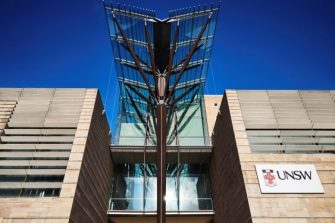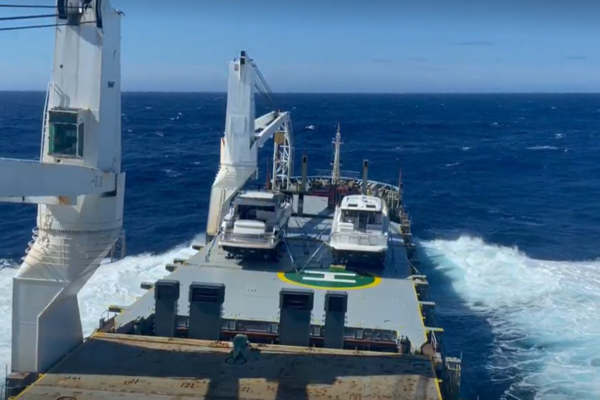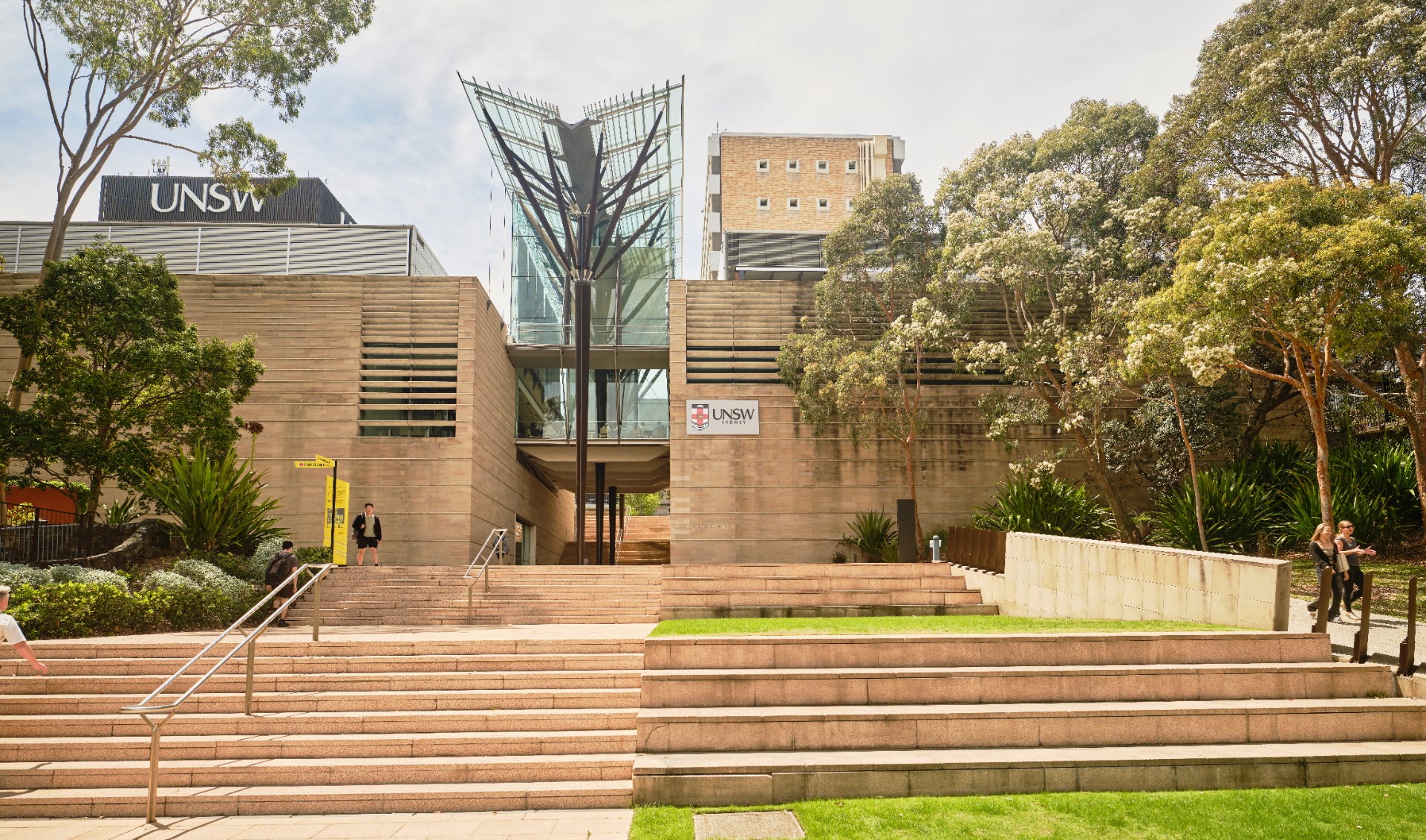Early-career researchers net $7m in funding
2024-08-28T09:00:00+10:00

The Australian Research Council funding will enable research into projects including teacher burnout, boosting plastic recycling and turning human waste into fertiliser.
Photo: UNSW Sydney
The Australian Research Council Discovery Early Career Researcher Awards has awarded 15 UNSW researchers grants totalling $7 million.
Teacher burnout, boosting plastic recycling and turning human waste into fertiliser are just some of the areas UNSW researchers will be able to investigate, after receiving hundreds of thousands of dollars each in funding from the Australian Research Council’s (ARC) Discovery Early Career Researcher Awards (DECRA).
UNSW Deputy Vice-Chancellor Research & Enterprise, Professor Bronwyn Fox, said she’s excited for what the 15 successful projects will deliver.
“These projects demonstrate the depth and breadth of our work here at UNSW,” she said.
“The research that’s received this funding will help address some of the big issues facing our country and our world. From quantifying the risk of bushfires, improving the way AI interacts with humans and better understanding First Nations languages, this work will have real-world implications.
“It’s a tribute to UNSW’s early career researchers that so many of them have been honoured with these ARC Discovery Program grants.”
Seven of the UNSW grant recipients are from the Engineering faculty, three from Science, two each from UNSW Canberra and Arts, Architecture & Design, and one from Medicine & Health.
This year, the ARC DECRA has given $93 million to 200 research projects around the country.
The winning projects from UNSW are:
Addressing teacher workload in Australian education systems
- Awardee: Meghan Stacey, UNSW Arts, Design & Architecture
- Grant total: $486,827
- Project summary: Teacher workload is a growing problem, but strategies to address it have yet to be tested. This project will investigate teacher workload reduction policies currently emerging across four Australian states, and aims to evaluate ways to better manage teacher workload and support teacher retention.
Urine to Liquid Fertiliser Conversion
- Awardee: Zhiqiang Zuo, UNSW Engineering
- Grant total: $488,661
- Project summary: Imagine if human urine could be transformed into a safe liquid fertiliser. This project hopes to lead to a globally applicable, feasible solution for fertiliser bioproduction.
Is there a link between flash drought and bushfires?
- Awardee: Abhirup Dikshit, UNSW Science
- Grant total: $433,451
- Project summary: Anecdotally, flash drought leads to aggressive bushfires, and this project aims to quantify that influence. The research will use an innovative approach that combines new-generation geostationary satellites with very high-resolution regional climate modelling to help predict flash droughts using machine learning, helping to plan for and manage flash droughts and bushfires.
Language for Country: Perceiving and interacting with Cape York landscape
- Awardee: Clair Hill, UNSW Arts, Design & Architecture
- Grant total: $475,851.00
- Project summary: This project investigates how people perceive and talk about landscape in Indigenous Australian languages. While we know that language is intimately connected to Country in Indigenous Australia, little is understood about how languages represent landscape and landscape perception. The project focuses on a language shift context in eastern Cape York, comparing the heritage language of Umpila/Kuuku Yau and Lockhart River Creole.
Protecting fertility, family and culture in Fiji
- Awardee: Elke Celeste Mitchell, UNSW Medicine & Health
- Grant total: $477,266.00
- Project summary: This project will explore infertility among Indigenous Fijians, investigating how different factors such as gender, culture, age, Indigeneity and socio-economic status affect couples hoping to conceive. This project will provide significant benefits such as research training for Fijians and extensive international collaboration.
How do diverse experiences shape face recognition in humans and AI?
- Awardee: James Dunn, UNSW Science
- Grant total: $483,059
- Project summary: The human face tells others who we are and how we are feeling. Humans can accurately and efficiently recognise faces and emotions, and this new project aims to understand how we learnt that skill using computational AI models, and in turn use that knowledge to improve AI accuracy, reliability and transparency for face recognition.
Advancing Plastic Recycling through Computational Catalyst Design
- Awardee: Martina Lessio, UNSW Science
- Grant total: $458,331.00
- Project summary: This project aims to develop new catalysts for plastic recycling, to turn waste into high value chemicals and generate new virgin plastic.
Enhancing properties of advanced 3D printed alloys
- Awardee: Olga Zinovieva, UNSW Canberra
- Grant total: $488,615
- Project summary: There’s a lack of predictability when it comes to 3D printed bespoke alloys which are used for defence and aerospace. This project will help make the projection of this vital resource more cost-effective and sustainable, reinforcing Australian leadership in advanced manufacturing.
Intelligent sensing and communications for 6G Vehicle-to-Everything Systems
- Awardee: Qingqing Cheng, UNSW Engineering
- Grant total: $468,456
- Project summary: This project investigates the challenges of integrated sensing and communication (ISAC)-empowered vehicle-to-everything (V2X) systems in sixth-generation (6G) networks, and the work will benefit the Australian vehicular industry and intelligent transportation systems in relation to traffic congestion, road safety and reduced vehicle emissions.
Tackling instability issue of perovskite toward lab-to-field PV application
- Awardee: Zhen Li, UNSW Engineering
- Grant total: $473,691
- Project summary: Perovskite solar cells provide the potential for remarkable cost-reduction through solution-based and low-temperature fabrication, and this project aims to find ways to make these cells more robust and stable, ultimately enhancing the availability of low-cost photovoltaic technology.
Ionic-electronic conductive elastomer composites for flexible electronics
- Awardee: Fei Zhang, UNSW Engineering
- Grant total: $467,331
- Project summary: Stretchable conducting materials are used every day, in electronic devices, cables, sensors and wires. This project aims to develop a new type of material to make these items by interacting ionic liquid and stiff conductive fillers.
Quantum-confined Semiconducting Polymeric Carbons for CO2 Photoconversion
- Awardee: Changmin Kim, UNSW Engineering
- Grant total: $435,831
- Project summary: This research aims to reduce energy costs and enhance Australia’s energy security by realising viable CO2 photoconversion using quantum-confined semiconducting polymeric metal-free carbons. The project will try to achieve an unprecedented 30% apparent quantum efficiency in the visible light range, which is the most efficient range but has never been recorded.
Forging new links: Diophantine problems, modular forms and number fields
- Awardee: Vandita Patel, UNSW Canberra
- Grant total: $455,979
- Project summary: This project will result in a deeper understanding of fundamental objects in mathematics including Diophantine equations, modular forms, and number fields. The research will help reinforce Australia's role as a global leader within mathematics, with a potential long-term benefit to cybersecurity via the study of elliptic curves.
Explainable Fuzz Testing for Software Vulnerability Detection
- Awardee: Yuekang Li, UNSW Engineering
- Grant total: $454,096
- Project summary: This project will investigate fuzz testing (or fuzzing), which is a widely used method for identifying software vulnerabilities. The research aims to improve existing methods and develop new approaches, boosting Australia's secure and high-quality software development landscape.
Neural Empowered Subgraph Query Processing
- Awardee: Hanchen Wang, UNSW Engineering
- Grant total: $449,554
- Project summary: Subgraph query processing is used in cybersecurity, biomedicine and e-commerce. This project aims to create new ways of using this technique and establish a foundational advancement in artificial intelligence for databases.
Media enquiries
For enquiries about this story and interview requests, please contact Julia Holman
Tel: 0435124673
Email: julia.holman@unsw.edu.au


.jpeg/jcr:content/renditions/cq5dam.web.1920.1920.jpeg)

